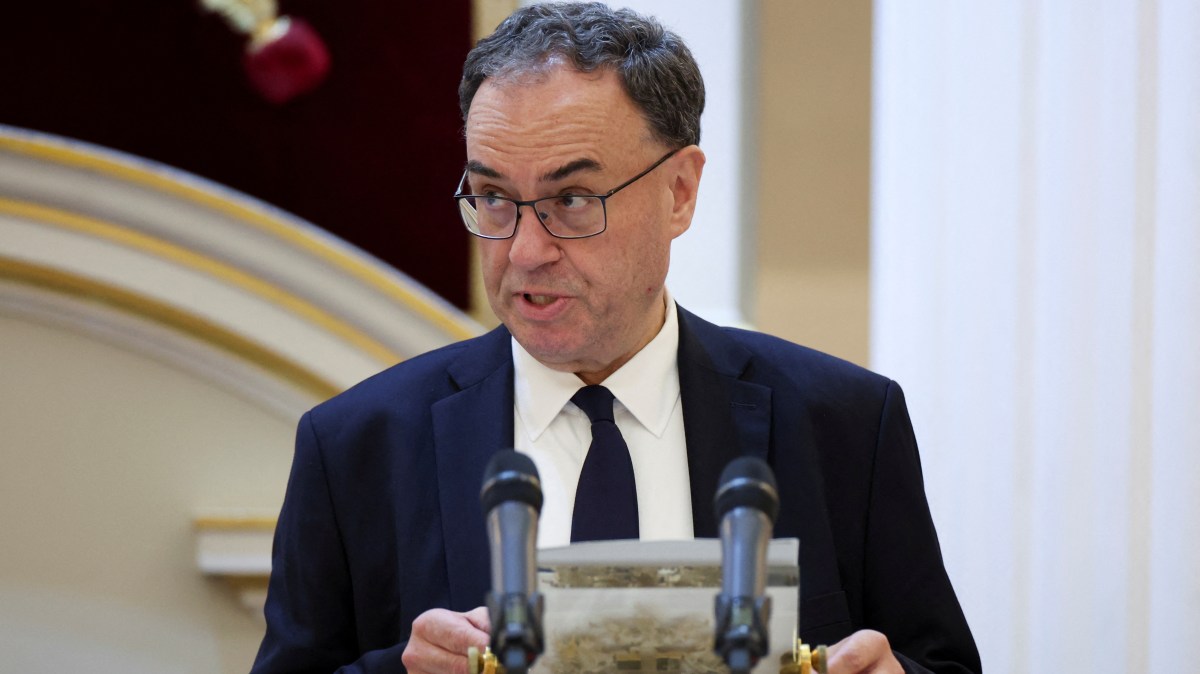His speeches can move markets, but even Andrew Bailey cannot resist getting a helping hand from artificial intelligence.
The governor of the Bank of England uses Copilot, the AI software owned by Microsoft, for official speeches, the Bank has confirmed. It is understood that Bailey uses AI as an editing tool, inputting the draft of a lengthy speech and asking the software to cut it down to the right length before delivering it.
The original version of the text is later published on the Bank’s website. A Bank source said that the tool “helps when a speaking slot is time-limited, for instance during a conference”.
• ChatGPT helped me parent for a week — here’s how it went
However, MPs have warned the governor over his use of the software. The Treasury select committee is investigating how AI is being used in financial services, including duping constituents with sophisticated scams.
Dame Harriett Baldwin, a Conservative MP who sits on the committee, said: “You have to be extra careful with using it — including the Bank of England.”
The former Tory leader Sir Iain Duncan Smith, who criticised the Bank over quantitative easing during the coronavirus pandemic and the recent offloading of QE bonds, said: “It looks to me like they already have an AI governor. If he’s handing things over to AI, we have to question whether he is in fact an avatar himself. Physical checks should be taken out immediately.”
• Would you let ChatGPT find your next home?
The Bank would not clarify when Bailey had started using AI for his speeches, but The Times understands he has used it for at least six months.
The governor has previously spoken of the merits of AI, and argued that it will not be a “mass destroyer of jobs”, although he has acknowledged it carries risk.
In a recent speech Bailey, who has been governor since 2020, said: “It should have a significant and prolonged positive impact on productivity growth, and will itself create new ideas, new products and new ways of doing things.”
MPs have criticised the use of ChatGPT in parliament.
Tom Tugendhat, the Tory former security minister, accused his colleagues of resorting to AI to write their speeches and using the same phrases as a result. The use of “I rise to speak” and “I rise today”, frequently suggested by ChatGPT as a way to begin speeches, has surged in the Commons since the release of the AI tool in 2022.
MPs are also increasingly using words such as “underscores” and “streamline”, also associated with AI. Tugendhat told MPs on Tuesday: “All we hear from government members in ChatGPT-generated press releases is ‘I rise to speak’, ‘I rise to speak’, ‘I rise to speak’. ChatGPT knows you are there.
“That is an Americanism that we do not use. Still, they should keep using it, because it makes it clear that this place has become absurd.”
The MP later added on X: “If you can’t make an argument without the whips giving you the question or ChatGPT turning a handout into a speech, who are you representing? Clearly not the electorate.”
Sir Lindsay Hoyle, the Commons Speaker, has set up a steering group to examine how AI tools can affect the work of MPs. Citing the way some parliaments use the technology to translate debate into multiple languages simultaneously, he said: “AI can be good or AI can be bad. We do not want all the speeches being the same. We need to use AI to enhance parliament.”
Other politicians are increasingly relying on AI. The Labour MP Mike Reader has said he uses it to respond to constituents, saying it is the only way to manage hundreds of emails a week.
A spokesman for the Bank of England said: “We believe AI has the potential to have a profound impact on how we work at the Bank and help us achieve our monetary policy and financial stability objectives.
“Our aim is to make AI tools and services easily accessible to all our staff, regardless of their role, which will in turn support the efficiency of the organisation.”
